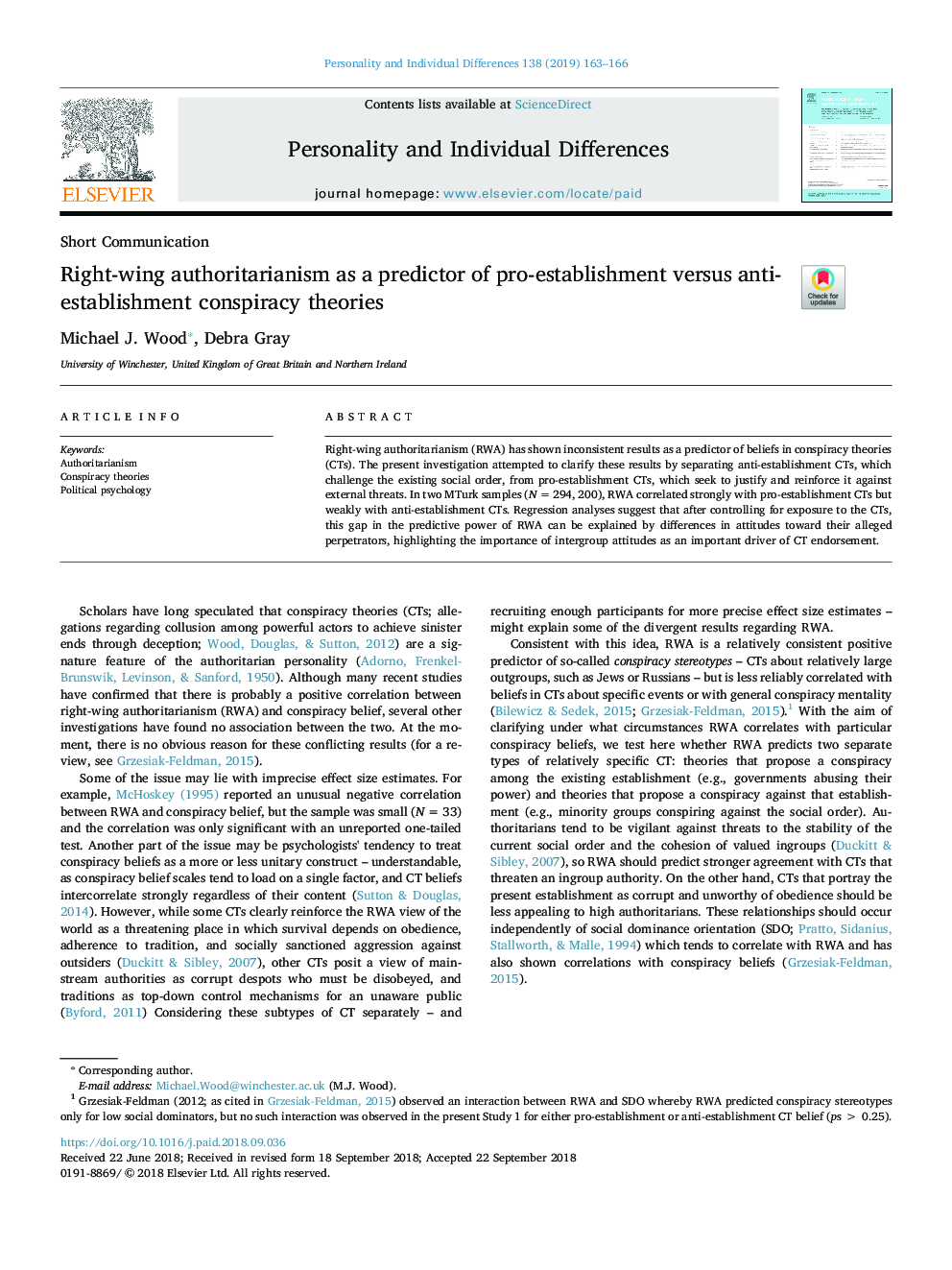| Article ID | Journal | Published Year | Pages | File Type |
|---|---|---|---|---|
| 11028814 | Personality and Individual Differences | 2019 | 4 Pages |
Abstract
Right-wing authoritarianism (RWA) has shown inconsistent results as a predictor of beliefs in conspiracy theories (CTs). The present investigation attempted to clarify these results by separating anti-establishment CTs, which challenge the existing social order, from pro-establishment CTs, which seek to justify and reinforce it against external threats. In two MTurk samples (Nâ¯=â¯294, 200), RWA correlated strongly with pro-establishment CTs but weakly with anti-establishment CTs. Regression analyses suggest that after controlling for exposure to the CTs, this gap in the predictive power of RWA can be explained by differences in attitudes toward their alleged perpetrators, highlighting the importance of intergroup attitudes as an important driver of CT endorsement.
Related Topics
Life Sciences
Neuroscience
Behavioral Neuroscience
Authors
Michael J. Wood, Debra Gray,
